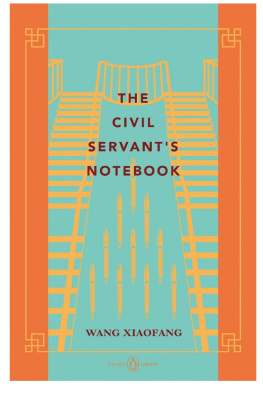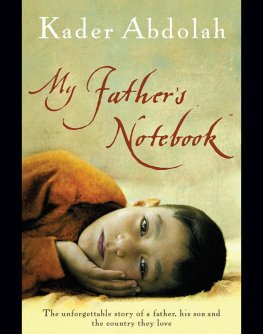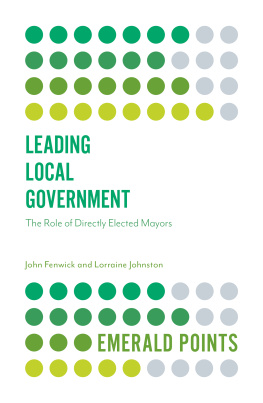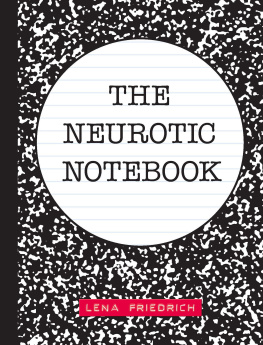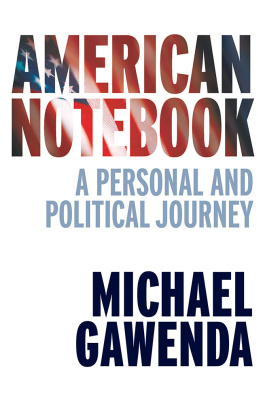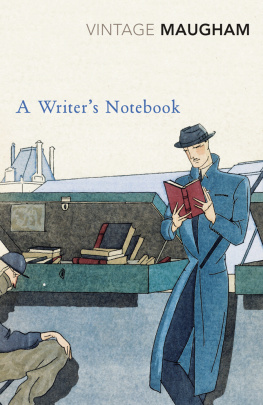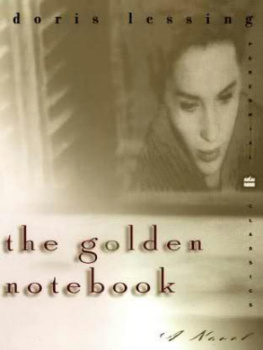Contents
About the Author
Wang Xiaofang began his career in the civil service, which culminated in a position as private secretary to Shenyang Provinces Deputy Mayor Ma Xiangdong who, in 2001, was sentenced to death for gambling away over 3.6 million US dollars of public money at Macaus casinos.
Since leaving his position in 1999, Wang Xiaofang has published thirteen novels about corruption and politics in China, many of which have topped the bestseller charts. The Civil Servants Notebook is his first novel to be translated into English.
A Note on Chinese Usage and Names
In Chinese, a persons given name always follows their surname. Therefore, the character Yang Hengda has the surname Yang and the given name Hengda. Lower ranked government officials will always refer to senior officials by their surname preceded by official title. Vice- ranked officials will occasionally be referred to without the vice- prefix, especially by lower ranked officials, as a show of respect. Vice-Mayor Peng would then simply be shortened to Mayor Peng.
Pinyin, the standard Romanisation method for Chinese characters, has been used throughout this novel except where the Chinese is more commonly known by its former Wade-Giles spelling (e.g. Chuang-tzu).
Number Two Department, Department Head, Yang Hengda
EVERYONE WANTS TO go to heaven, but the gate of heaven isnt like the gate of hell, which opens with a push. I confused the gate of hell with the gate of heaven.
I read that in a report about the downfall of a high-level official.
I have to admit the statement shook me. Ive always wondered: besides the doors of heaven and hell, might there be a third door? If not, then what is it were struggling for? Is it merely to push open the door to hell?
Thinking this over I realise that in the course of my whole life, theres only been one door Ive been compelled to push open every day, and thats the door to my office: Number Two Department, Combined Affairs, Dongzhou Municipal Government.
I am the department head. Every day when I open this door I am at my most smug and complacent and my soul is at its most empty.
Last night I paid a visit to the Old Leader, whom I served for many years. He is ill with uric poisoning. Yes, thats uric poisoning, not uraemia. Many who visit him assume its uraemia and cant see how it could be uric poisoning, but the moment the Old Leader explains, they understand.
He has uric poisoning because hes been drinking his own urine for years, and despite the fact that the habit has landed him in hospital, he misses no opportunity to recommend his long-practised cure to his visitors. Tirelessly, he expounds its benefits, reciting from the Compendium of Materia Medica : Urine, urina , aka karmic liquor or essential decoction . Salty of savour, cooling, non-poisonous. Principally used in curing chronic cough and congestion, cholera, injuries sustained in falls, haemorrhoids, etc.
Hell add something about the urine cure being a quintessential part of Chinese culture. He hasnt changed a whit since I was in his service five years ago. Hes still a devoted practitioner of the cure, even after he collapsed and was hospitalised.
Just the thought of the urine cure turns my stomach.
Though the Old Leader has been retired for many years, he is still a leading light in Dongzhou City, both by rank and record of service. He chose me as his secretary when I was a principal-level researcher in the office of the Retired Cadres Bureau of the Municipal Party Committee. He had read an article I published in the Dongzhou Government Report magazine about how retired cadres could maintain their health. The Old Leader liked my writing style as well as my firm grounding in health issues. Fact is I didnt have a firm grounding. Id simply been asked to contribute to the Dongzhou Government Report and wrote something off the cuff. But the article earned his appreciation, and out of the blue he chose me to be his secretary.
Once I had assumed my post I learned the Old Leader was hoping to use my skill with the pen to produce an important manuscript. It hadnt yet taken shape. It was merely a notion in his head. The work was not completed until five years after I assumed my post, under the title, Philosophical Reflections on the Urine Cure .
Though I wrote the manuscript, it naturally appeared under the name of the Old Leader. He had poured five years of his hearts blood into the work; not for public consumption, but to record his experiences and share them with the retired cadres, and, of course, as a legacy for younger ones.
At first I had difficulty understanding what the Old Leader told me about his insights into the urine cure, so he was dissatisfied with what I wrote. He also believed that experience was the only true method of testing a theory.
So it was after his repeated urgings and to better fulfil my duty that I began the urine cure myself.
I never thought I would drink urine for a full five years.
In addition to transcribing the Old Leaders thoughts on the cure, I was also under strict instructions to record my own ponderings, two thousand characters per day, minimum. Come rain or shine he reviewed and annotated my notes as if he were reviewing government documents, with a red pen no less. So over the course of those five years I not only wrote the Old Leaders Philosophical Reflections on the Urine Cure , but I also accumulated nearly one million characters of my own Reflections .
I never imagined the Old Leader would be struck down by his urine drinking habit. This was the diagnosis of Western medicine, of course, and he had a staunch faith in Chinese medicine. He insisted that his illness was caused not by drinking urine, but, on the contrary, because thered been a couple of days when he had stopped drinking urine. He had stopped because, being over seventy, he was having problems with his prostate and was unable to urinate, leading to a hiatus in his cure. Last night he still held fast to his opinion, saying he would continue his cure and Let them say what they will!
I drank my own urine for five years and I think Im qualified to say something about the cure. In the beginning, with the Old Leaders assurances, I too believed drinking urine would strengthen ones body and extend ones life.
But after a long period of practice I realised that urine is a waste product, painstakingly filtered from the blood by the kidneys, and putting it back into the body was simply making the kidneys and liver do their work over again. No wonder he was poisoned!
Regardless what you believe, urine is not water, though water may be its major component. Urine is toxic. It is a waste by-product of the bodys metabolism.
You can liken society to a human body, from which the metabolism of history expels cultural waste. This cultural waste is terribly dangerous, but we often confuse what is dangerous with what is great and enshrine these things as our traditional cultural heritage.
My reflections on urine drinking were precisely this kind of trash.
The day I left the Old Leader to become head of Number Two Department, my friends treated me to a proper send-off. I sniffled as I watched the yellow, white-frothed beer being poured into my cup. My friends thought I was weeping for joy at being made a department head. Little did they know those were tears of suffering. I had drunk my own urine for five years to get this position. I felt like a newly released prisoner.
That night I drank too much, and when one of my friends drove me home I was overcome by nausea. I ignored it, however, and once I got indoors I rummaged around for my reflections on the urine cure. It was a full ten thousand pages. The sections written during the first two years were already yellowing like dried leaves. I found a quiet place in the apartment compound and burnt them all, my face lit red by the fire, the flames hissing their mockery.

